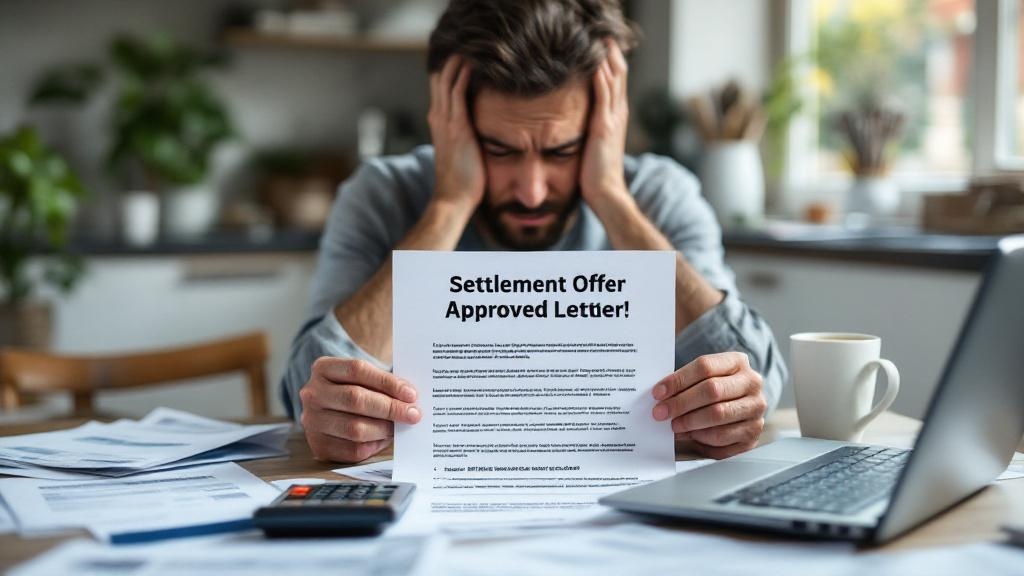If you’re drowning in debt and struggling to stay afloat, debt settlement negotiation may be a life raft worth grabbing. This process allows you to settle your debt for less than what you owe — and while it won’t erase your financial obligations overnight, it can provide a fresh start and real relief.
In this guide, we’ll walk you through how debt settlement negotiation works, what to expect, and the smartest ways to approach creditors — whether you do it yourself or seek professional debt settlement help.
What Is Debt Settlement Negotiation?
Debt settlement negotiation is the process of working with a creditor or collection agency to reduce the total amount of unsecured debt you owe. In most cases, the creditor agrees to accept a lump sum payment that is less than the full balance.
You can negotiate on your own, or you can hire debt settlement companies or debt negotiation services to do the hard work for you.
🔍 Example:
If you owe $10,000 in credit card debt, you may be able to negotiate a settlement offer of $5,000 or $6,000 — especially if your account has been charged off or sent to collections.
How Does Debt Settlement Work?
1. You Stop Making Payments (Strategically)
When you’re behind on payments, creditors may become more open to negotiation. But be aware: this can severely hurt your credit score, and late fees or penalties may continue to accrue.
2. You Make a Settlement Offer
You offer a lump sum payment (or structured payment plan) in exchange for a creditor agreement to mark the debt as “settled.”
3. You Get the Agreement in Writing
Never rely on verbal agreements. Get everything in writing — including that the creditor won’t pursue further collection or sell your debt to a collection agency.
4. You Pay and Close the Account
Once payment is made, the debt is considered closed. But keep in mind — it may still impact your credit score.
When Should You Consider Debt Settlement?
Debt settlement isn’t for everyone. It’s usually best suited for people who:
-
Are dealing with financial hardship
-
Are behind on payments (90 days or more)
-
Have large amounts of unsecured debt (e.g., credit card debt or medical bills)
-
Can’t qualify for debt consolidation or bankruptcy feels too extreme
DIY vs. Professional Debt Negotiation Services
You can negotiate credit card debt yourself — and many people do. However, hiring a reputable company can save time and provide leverage.
✅ Pros of Doing It Yourself
-
No service fees
-
Direct communication
-
Full control over the process
⚠️ Cons
-
Time-consuming
-
Requires negotiation skills
-
Risk of saying the wrong thing
✅ Pros of Using Professional Debt Settlement Help
-
Experienced negotiators
-
May get better deals
-
Handles communication with aggressive collection agencies
⚠️ Cons
-
Service fees (usually a % of the settled amount)
-
Some companies are scams — do your research!
How to Negotiate with Creditors: Step-by-Step Guide
Step 1: Assess Your Debt
List all debts and identify which ones are unsecured (credit cards, medical bills, personal loans).
Step 2: Understand Your Financial Limits
Know the maximum amount you can realistically offer as a lump sum or in installments.
Step 3: Contact the Creditor
Call and ask to speak with the debt resolution department. Be polite but firm.
Step 4: Make a Realistic Offer
Start low (30–40% of the total) — they may counter. Emphasize financial hardship if applicable.
Step 5: Get the Agreement in Writing
Before paying anything, request a formal settlement offer and creditor agreement.
Step 6: Make the Payment
Pay as agreed, whether as a single lump sum or structured settlement.
Step 7: Confirm Account Status
Request a letter stating the account is settled and ask credit bureaus to mark it as “Settled in Full” if possible.
Risks and Downsides of Debt Settlement
While debt reduction negotiation has benefits, it also has consequences:
-
📉 Credit Score Impact: Settled debts can drop your score by 100+ points.
-
💵 Tax Implications: Forgiven debt over $600 may be considered taxable income.
-
⏳ Time-Consuming: The process can take months to finalize.
-
⚠️ Scams: Avoid fake debt settlement companies that charge upfront fees.
Alternatives to Debt Settlement
If settlement isn’t right for you, consider these options:
-
Debt consolidation loan
-
Credit counseling
-
Debt management plans
-
Bankruptcy (as a last resort)
Each has pros and cons, so compare carefully.
How to Choose the Best Debt Settlement Companies
Not all debt negotiation services are created equal. Look for companies that:
✅ Are accredited by the AFCC or NFCC
✅ Have transparent fees
✅ Offer a free consultation
✅ Don’t require upfront payments
✅ Provide a clear contract and timeline
Real-Life Example: Sarah’s $20,000 Credit Card Debt
Sarah lost her job and racked up $20,000 in credit card debt. She contacted a well-rated debt settlement company that negotiated her balance down to $8,000. She paid it in two lump sum payments over 90 days.
While her credit score dropped temporarily, she was relieved to avoid bankruptcy and regain financial stability.
FAQs About Debt Settlement Negotiation
1. Can I settle debt directly with a collection agency?
Yes. In fact, collection agencies are often more willing to settle than original creditors. Start with 30–50% of the total owed as your offer.
2. Will debt settlement hurt my credit score?
Yes, especially in the short term. Charge-off accounts and settlements can stay on your report for up to 7 years.
3. Is debt settlement the same as debt forgiveness?
Not exactly. Debt forgiveness usually comes from lenders voluntarily canceling your debt (rare), while settlement involves negotiating a partial payment.
4. Can I negotiate credit card debt if I’m still current?
It’s much harder. Most creditors won’t negotiate until your account is delinquent or sent to collections.
5. How much should I offer in a debt settlement?
Start low — around 30–40%. You may land somewhere between 40–60% after negotiation.
6. What kind of debt can I settle?
Unsecured debts like credit cards, personal loans, and medical bills. Secured debts (like mortgages) are not usually eligible.
7. What happens if the creditor rejects my offer?
They may counteroffer, send the account to collections, or continue to charge interest. Don’t give up after one try.
Conclusion: Is Debt Settlement Negotiation Right for You?
Debt settlement negotiation can be a powerful tool for those facing serious financial hardship and high-interest unsecured debt. It’s not a magic fix — and it does come with drawbacks — but it may be the bridge between drowning in debt and regaining control.
Whether you DIY it or use professional debt settlement help, the goal remains the same: Settle debt for less, reduce stress, and move toward financial freedom.
✅ Ready to Settle Your Debt for Less?
Explore trusted debt negotiation services, create your settlement offer, and take the first step toward a debt-free life — one smart decision at a time.








Comments (0)